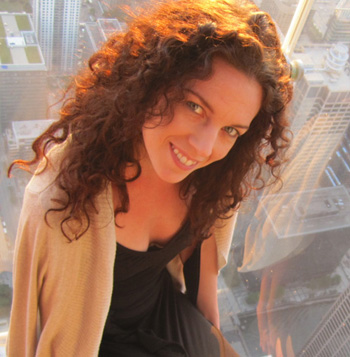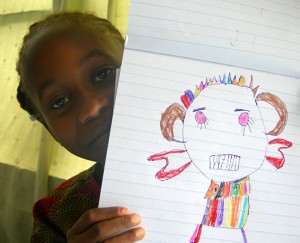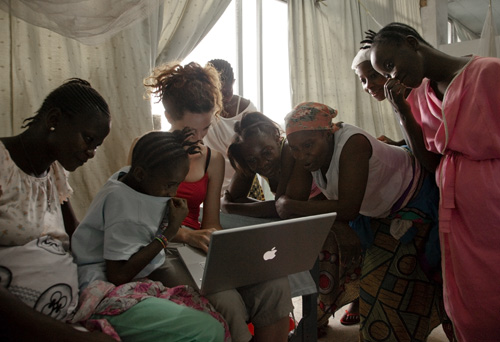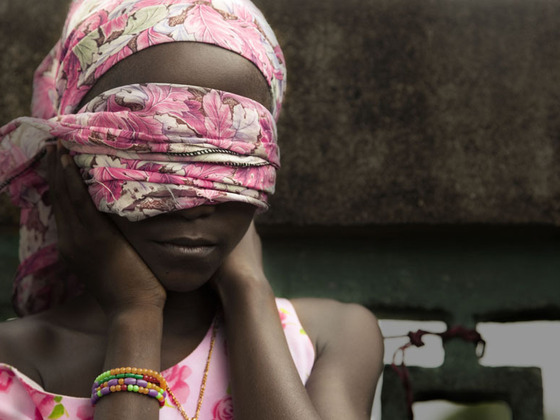Worldview Change: A SmallSmall Thing
“Think of a Paradigm Shift as a change from one way of thinking to another.
It’s a revolution, a transformation, a sort of metamorphosis.
It just does not happen, but rather it is driven by agents of change.”
–TakeTheLeap.com
In therapy one of the hardest things to do is help someone shake out of their perspective on life, broaden it or change it. This paradigm shift, or worldview change, is equally difficult to achieve in our day-to-day lives. Sometimes it happens accidentally; sometimes it happens as a trauma. Sometimes people set out seeking a change in perspective. Once that shift is achieved, the naturally following question is “what do I do now?”
I’ve had my life changed through engaging with the clients that I work with, and it’s given me a passion to continue. I strive to offer that same change to those clients whose own view of the world, or their lives, can foster some very negative cycles. My own change is a small one.
I spoke with Jessica Vale about her current documentary project SmallSmall Thing (click for trailer) because it not only has worldview conflict as a theme, but Jessica knows first hand what happens when your perspective on life broadens. SmallSmall Thing tells the story of a 12 year old Liberian girl, her mother and their struggle between competing worldviews of traditional Witchcraft and Western medical perspectives surrounding Olivia’s illness, which may have been caused by rape. Jessica’s story is one of letting go of “selfishness” and embracing the responsibility of her own gift when faced with the story of a larger world.
* * *
 Please describe your worldview or life perspective before the project.
Please describe your worldview or life perspective before the project.
The first word that comes to mind is curiosity. My entire life I have sought new experiences, and felt traveling gave me a better understanding of myself and my own life. It started out very selfish, as pure desire for novelty and adventure. I still have the adventurous side, but behind it is experience and understanding. I realize that not too many people are willing to go where I am, and learn about the things I do. Liberia, North Korea, Serbia, Bosnia, these are places I chose to go on my own.
What were the changes to your worldview now and what experiences brought them on?
The side effect, for better or worse, comes when you spend time with the people in these places. You learn their stories, and you see things from a new perspective. When this began happening I realized I needed to combine my film career with the drive for adventure and curiosity. Making documentaries was natural. But with it comes a lot of responsibility.
What, exactly, do you see as your responsibility?
To do justice to the stories. The people in my films have agreed to tell me very intimate details about their lives. As someone who as also worked in reality television, I see what can happen when there’s zero concern or regard for the people on camera. People’s lives can be ruined. But people’s lives can also be changed for the better. It’s up to us to present it right.
…and you are bringing light to a topic that needs it—as Global Voices and others have said there is a “rape epidemic” in places like the Congo and Liberia, which can cause the same medical issues Olivia experiences. What about you had to change, evolve or grow to make the shift from selfish to documentarian?
It’s a huge undertaking to make a documentary. I’ve done 2 feature length [films] now, each one equally as complicated and soul consuming. I just had to make the decision to undertake the work. Traveling and seeing the world is as simple as getting on a plane. Making a film is years of your life, and very expensive.
The decision came as a result of realizing I could do it, and that few people can or will. How many non-doctors will go to Liberia and spend weeks in an operating room? How many people will go there and interview accused rapists in a prison? Not many. I decided my natural curiosity could be put to some good use!
You went to Liberia to make a different movie, then found this–much more compelling–one. What did you take away from that experience?
I can’t say the first one wasn’t compelling, it certainly was! And I still have hopes it will be finished one day. But it did prove that good situations can be made from seemingly bad ones. I might not have spent so much time getting to know Olivia and her mother if I was shooting the original film. I certainly wouldn’t have had time to visit Monrovia Central Prison, or the Temple of Justice like we did that trip.
 Did the vision end up as you pictured it?
Did the vision end up as you pictured it?
Werner Herzog has a quote that I love: “Your film is like your children. It will live its own life and have its own character. To suppress that is dangerous.” The best I can say is that the story didn’t go how I thought it would. The ending was a total surprise! That’s the beauty of documentary; you can only predict it to an extent.
The concepts of Liberia and Witchcraft have an influence on how Liberians view health and mental illness, did you experience that conflicted worldview as it sounds like Olivia and her mother did?
This question could get very deep and complicated! The main conflict surrounding the entire ordeal is that of “truth;” How people define truth, and if truth needs to relate to facts. It’s a core conflict in the film; Traditional/Bush society vs. Western/Modern society.
Olivia and her mom come from a culture of animist belief. They can’t read or write, and their practices have been in place long before Liberia was colonized by freed American slaves. They blame Olivia’s condition on witchcraft despite doctors saying it was rape.
“Witchcraft” is the way to explain negative situations, and Olivia’s mom had no reason to think otherwise. The tribal elders call the shots, and it’s your duty to obey. I have since seen countless people try and explain the “rape led to the fistula” trail of evidence to her, but it’s speaking another language. Tell her Olivia had a curse put on her, and it makes perfect sense.
I have the same problem trying to explain this to people who have no concept of bush society or tribal belief systems. They say “No, Olivia’s mom was just in denial!” But she’s not. She has no reason to believe the word of surgeons, but a lot of reason to believe village elders.
A family struggling with possible PTSD and/or the secret or the conflict of an inter-family rape, is something that I have experience with as a therapist. What was it like for you to come so close to such a trauma as art involves internalization of your subject?
As a filmmaker I am coming at it from a different angle than a therapist. My job is to tell a story, so getting as many perspectives as possible is necessary, including that of the family who shunned Olivia and her mom. The village says she was lying, and there can be a horrific knee jerk reaction to that. The sad fact is that, for them, it’s actually in their best interest NOT to believe Olivia, who accuses her cousin of the rape, for the sake of the tribe’s success and harmony. You could make that unfortunate claim in the US too, but there it can literally come down to your survival. Your village shuns you, you don’t eat. You accuse a family member of an unseen crime; they may just kill you rather than create rifts in the village unity.
To be blunt, this is a movie influenced by the prevalence rape in Liberia and you and Nika are attractive white girls. What were your feelings about your own risk?
I get asked that a lot. The first trip was rough. It was 2007 and we actually had 3 armed presidential security agents 24/7 and never left the hospital compound. As years passed, it felt much safer, partly because electricity started to become available again. We had security every time regardless. The last time was Louis, an under cover cop who ends up being a major character in Smallsmall Thing.
I have to add though; the worst man of all was actually this UN soldier from Serbia. He thought it was hilarious to tell Nika and I about how in the bush secret societies prefer young white girls as sacrifices. Then he’d laugh at himself. What a jerk.
 The picture of the women gathered around your Mac is striking. Did you create any cultural impact yourself, bringing technology and American ideals–especially one as voyeuristic in search of truth as documentary–to a culture that I’ve found can be entrenched in familial and societal secret-keeping? Did your presence cause eye-opening or conflict?
The picture of the women gathered around your Mac is striking. Did you create any cultural impact yourself, bringing technology and American ideals–especially one as voyeuristic in search of truth as documentary–to a culture that I’ve found can be entrenched in familial and societal secret-keeping? Did your presence cause eye-opening or conflict?
I don’t feel my presence caused much notice generally speaking. Our crew was tiny, and it had to be. We were always shooting very intimate stories. I think most people just want someone to hear them, and they like knowing their story can be told to the world. Most of the Liberians we spoke to have no one else that cares. Monrovia may be recovering from war, but it was one of the most modern cities in Africa prior. The hospital was different because we became friends with those women. We would go every day and just hang out, no cameras turned on. Olivia liked taking photos around the hospital so they would gather at my laptop to see them.
We were more of a curiosity deep in the jungle, sure. But even there they get missionaries, so they always assume that’s our purpose. Once we explain ourselves, they are very receptive and excited that we are interested in their culture. Liberia is literally overflowing with people trying to force values on others. Missionaries, rebel factions, governments, NGOs, International Corporations…the last thing they need is me spreading my opinion!
One of the keys of successful therapy is to “meet a person where they are.” That can be difficult in situations like this, when the Western perspective differs so greatly. How do you get the villagers to engage with an alternate point of view without condescension or pressure?
I would never tell a villager that I agreed or disagreed with the situation. They would have shut us out. We’d ask them “Do you think it’s possible Olivia’s injuries could be caused by rape?” “If not rape, what else could be an explanation?” “What reason would Olivia’s mom have to lie?”
Olivia’s mom had already caused major trouble by pressing charges against the cousin. The village was completely divided. I just wanted hear everyone’s version of the story. We push them to answer questions, but we don’t antagonize them about the answers. Louis, our undercover cop, did try and champion reconciliation, but still avoided directly criticizing their beliefs.
Thank you for sharing with us how your worldview has changed, and how you put it into action. I’m sure many of your viewers will have their worldview widened by watching SmallSmall Thing. Maybe some would like to take action as well. Without focusing on cultural criticism or judgment, what would be the first step in helping girls like Olivia worldwide?
I think the first step in helping these little girls is teaching them when they are *still young* that rape is wrong. Then to get help immediately after they are raped. Most of them wait too long and then there’s no evidence. At that point it’s purely “he said, she said.” And that’s how these situations get out of control.
* * *
If you do want to get involved, in even a small way, please go to the Kickstarter page of SmallSmall Thing and donate or watch the trailer. The deadline is this Sunday, April 8th.
If you cannot donate but still wish to help tell Olivia’s story, just click on one of the advertising links that interest you here at KeithKarabin.com. That triggers the Google ads counter with drops a shiny internet nickel into the coffers here. Not only will I be making a personal donation, but I will also be donating all the advertising nickels that our fine readers click out.


